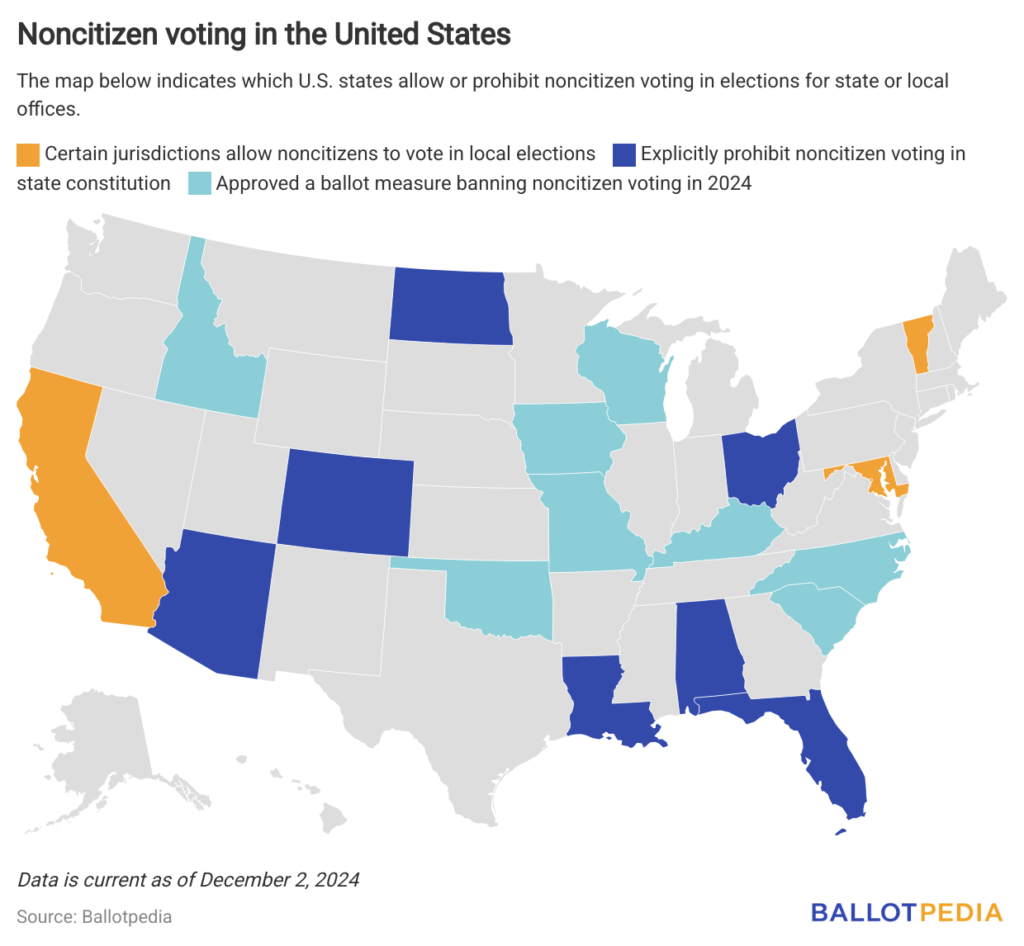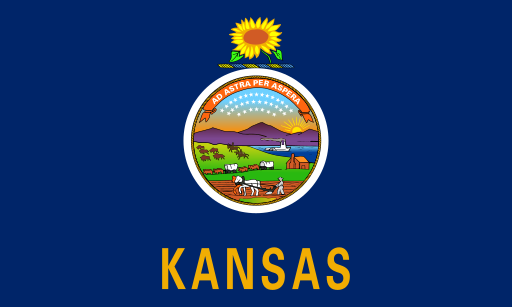Kansas voters will decide on a constitutional amendment on Nov. 3, 2026, to state that “No person shall be deemed a qualified elector unless such person: (1) Is a citizen of the United States...” Similar measures were approved in eight states in 2024, and South Dakota voters will also be deciding on such an amendment in 2026.
In Kansas, a two-thirds vote is required during one legislative session for the Kansas State Legislature to place a constitutional amendment on the ballot. The Kansas State House passed House Concurrent Resolution 5004 by a vote of 90-28, with seven not voting or absent on Feb. 5. The state Senate passed HCR 5004 by a vote of 37-3 on March 25. All voting Republicans and nine Democrats voted in favor of the amendment. All “No” votes were Democratic legislators.
Becky Arps, director of research for Americans for Citizen Voting, who submitted testimony in support of HCR 5004, said, “The Kansas Constitution protects the rights of every citizen of the United States who has attained the age of eighteen years and who resides in the voting area. It does not prohibit a municipality from allowing a non-citizen to vote legally. It is granting the right to vote to citizens of the United States but not reserving the right to vote to only citizens of the United States.”
Davis Hammet of Loud Light Civic Action submitted testimony in opposition to HCR 5004. Hammet said, “This amendment does nothing to strengthen our Constitution, it appears to do nothing at all legally, yet it will cause confusion, inflame tensions, and distract from important conversations.” HCR 5004 was also opposed by American Civil Liberties Union of Kansas and League of Women Voters of Kansas during the legislative process.
In 1996, the U.S. Congress passed a law prohibiting noncitizens from voting in federal elections, including elections for the U.S. House, U.S. Senate, and presidential elections. This law does not apply to elections for state and local offices. The District of Columbia and certain municipalities in California, Maryland, and Vermont allow noncitizens to vote in some or all local elections. The map below shows which U.S. states allow or prohibit noncitizen voting in elections for state or local offices.

The average approval rate of the 14 previous amendments was 73%. The lowest approval rate was in Kentucky in 2024, with 62%, and the highest approval rate was in South Carolina in 2024, with 86%. All but three of the measures were placed on the ballot by Republican-controlled state legislatures, the three others in Colorado, Florida, and North Dakota were placed on the ballot by citizen initiatives. In Iowa, Alabama, and South Carolina, nearly 100% of Democratic legislators supported the amendments.
This is the second constitutional amendment to be certified in Kansas for 2026 ballots. Voters will also decide on a measure to make the Kansas Supreme Court an elected office and to abolish the court's nominating commission on Aug. 4, 2026.
In Kansas, a total of 21 ballot measures appeared on statewide ballots between 1985 and 2022. Fifteen ballot measures were approved, and six ballot measures were defeated.
Additional reading:



